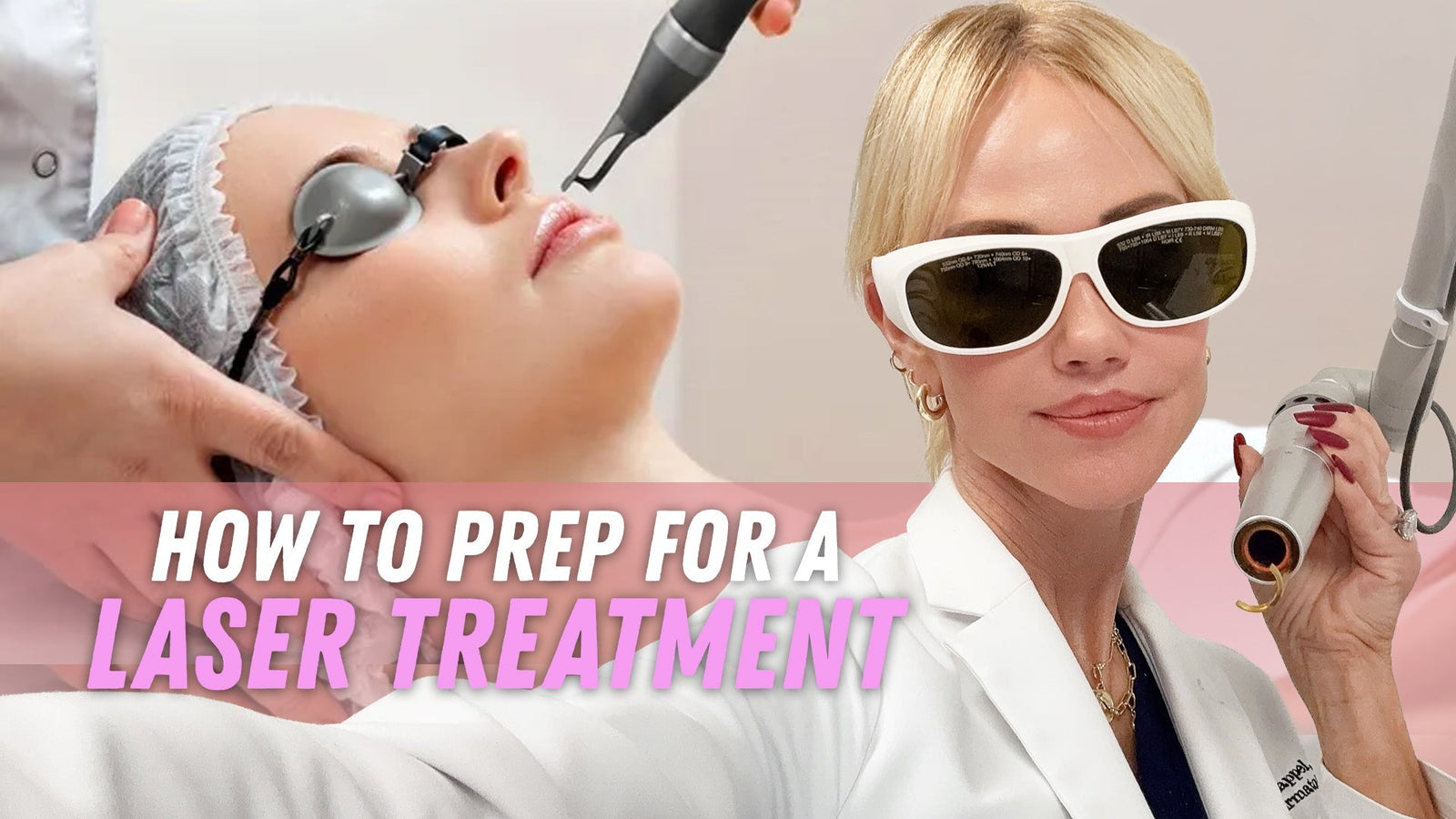Are you a woman between the ages of 35 and 55 noticing changes in your skin? Have you wondered if these changes might be related to shifting hormone levels, particularly declining estrogen? You're not alone! Estrogen plays a crucial role in maintaining youthful, healthy skin, and as levels decrease with age, it can lead to noticeable changes. In this article, we’ll dive into how estrogen affects your skin, what happens when levels drop, and what you can do to offset these changes. As always you can find more information on my newest Youtube video:
How Does Estrogen Impact Your Skin?
Estrogen is essential for maintaining:
- Collagen Production: Helps keep skin firm, plump, and elastic.
- Elastin Synthesis: Maintains skin’s resilience and prevents sagging.
- Hydration and Barrier Function: Supports the skin’s ability to retain moisture and maintain a healthy protective barrier.
When estrogen levels decline, especially during perimenopause and menopause, these effects can reverse, leading to:
- Loss of firmness and elasticity
- Increased dryness and sensitivity
- Fine lines and wrinkles appearing more prominently
- Textural changes and a dull complexion
What Can You Do to Combat Estrogen-Related Skin Changes?
The good news is that there are multiple ways to help maintain youthful-looking skin even as estrogen levels decline. Let’s explore a combination of topical treatments, supplements, and in-office procedures that can support your skin during this phase.
1. Topical Skincare Solutions
While some believe that applying topical estrogen directly to the skin can reverse aging, the reality is more complex. Topical estrogen may increase collagen and hydration, but it can also have side effects such as hyperpigmentation, acne, and increased hair growth. Fortunately, several scientifically-backed skincare ingredients can provide similar benefits without unwanted side effects:
- Retinoids (Retinol, Retinaldehyde, and Tretinoin): Stimulate collagen production and cell turnover to smooth and firm the skin.
- Vitamin C (Ascorbic Acid): A powerful antioxidant that brightens skin and supports collagen synthesis.
- Polypeptides and Growth Factors: Help to rebuild skin’s extracellular matrix and maintain elasticity.
- Hyaluronic Acid: Retains moisture and plumps up the skin.
2. Supplements for Skin Health During Menopause
In addition to topical treatments, certain supplements can provide internal support for skin aging:
- Collagen Peptides: Support the body’s natural collagen production.
- Vitamin D3 + Calcium: Essential for overall skin and bone health.
- Magnesium & Vitamin B Complex: Aid in skin cell repair and stress reduction.
- Black Cohosh & Ashwagandha: Help alleviate hormonal fluctuations that contribute to skin changes.
- Creatine: Supports energy production in skin cells, aiding in collagen preservation.
3. In-Office Treatments to Boost Collagen and Hydration
For those looking to take a more advanced approach to skin rejuvenation, in-office treatments can help reverse some of the signs of estrogen depletion:
- Lasers (Fraxel, CO2, and Thermage): Stimulate collagen production and improve skin texture.
- EZ Gel (Platelet-Rich Plasma): Boosts collagen regeneration for firmer, smoother skin.
- Bio-stimulatory Fillers (Sculptra, Radiesse, and EZ Gel): Encourage natural collagen production over time.
Is Hormone Replacement Therapy (HRT) Right for You?
Systemic hormone replacement therapy (HRT) can significantly benefit the skin by restoring estrogen levels internally, leading to:
- Increased hydration and barrier function
- Improved elasticity and firmness
- Reduction in fine lines and wrinkles
However, HRT is a medical decision that should be discussed with a qualified healthcare provider, as it comes with potential risks and benefits. If you are considering HRT, consult with an endocrinologist, OB-GYN, or women's health specialist to determine if it's right for you.
Final Thoughts: A Holistic Approach to Skin Health
Managing skin changes due to estrogen depletion requires a combination of skincare, supplements, in-office treatments, and potentially hormone therapy. By being proactive and well-informed, you can make the best choices for maintaining healthy, happy skin throughout perimenopause and beyond.
If you found this information helpful, share it with a friend who might benefit!



